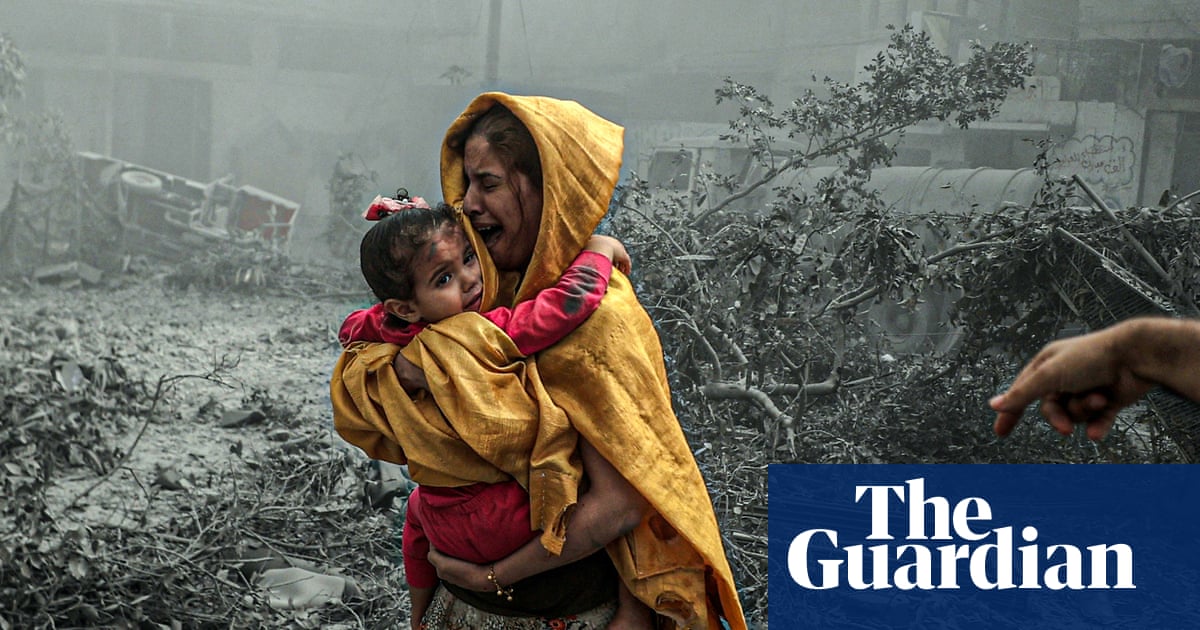## From Pixels to Bombs: Is The Guardian Right About World War III?
Remember that sinking feeling in the pit of your stomach when the “Game Over” screen flashed? Multiply that by a billion and you might be getting close to the dread The Guardian is grappling with in their recent article, “Are we heading for another world war – or has it already started?”.

Forget virtual enemies and respawn points – this is the real deal, and the stakes couldn’t be higher. Global tensions are simmering, conflicts are flaring, and the lines between hot and cold war are blurring faster than a speedrunner dodging a boss.

Is this the beginning of the end, or just another chapter in a long, messy history? We’re diving deep into The Guardian’s analysis to explore the real-world implications for you, the gamer, and the world we all share.
Buckle up, because this isn’t a game you can just quitThe Legacy of War: How Past Conflicts Fuel Present Tensions
The specter of another world war looms large, fueled by the lingering legacies of past conflicts. Old grievances, unresolved territorial disputes, and ideological divisions continue to simmer, creating fertile ground for renewed tensions. The scars of World War II, for example, continue to shape international relations, particularly in Europe. The unresolved issues surrounding the break-up of the Soviet Union in 1991 have also contributed to instability in the region, as evidenced by the ongoing conflict in Ukraine. The erosion of trust and the normalization of violence inherited from past conflicts create a dangerous cycle, making it harder to resolve current disputes peacefully.
The Enduring Impact of Historical Trauma
Beyond specific territorial conflicts, the psychological and emotional trauma of past wars can have a profound impact on present-day relations. Generational memories of conflict, coupled with narratives of victimhood and grievance, can fuel nationalist sentiments and create an environment where dialogue and compromise are difficult to achieve.
The Role of Technology: How Drones and AI are Changing Warfare
The Rise of Autonomous Weapons
The rapid advancements in military technology, particularly in the fields of drones and artificial intelligence (AI), are transforming the nature of warfare. Drones, capable of conducting surveillance and airstrikes with minimal human intervention, have become increasingly prevalent in conflicts around the world. The use of AI-powered weapons systems, which can select and engage targets without human oversight, raises serious ethical concerns about accountability and the potential for unintended consequences.
The Blurring of Battle Lines
The increasing sophistication of technology is also blurring the lines between traditional battlefields and civilian spaces. Cyberwarfare, for example, allows for attacks on critical infrastructure and the dissemination of disinformation, impacting civilian populations even in the absence of physical conflict. The proliferation of advanced weaponry, including hypersonic missiles and cyberweapons, increases the risk of miscalculation and escalation.
The Danger of Escalation: A Thin Line Between Diplomacy and Disaster
Nuclear Threats and the Risk of Unintended Consequences
The specter of nuclear war casts a long shadow over global security. The current geopolitical landscape, characterized by heightened tensions and mistrust, increases the risk of an accidental or intentional nuclear exchange. The potential consequences of such a conflict are catastrophic, with the threat of widespread devastation and long-lasting environmental damage.
The Importance of International Diplomacy: Can Dialogue Prevent Catastrophe?
In this volatile environment, the role of diplomacy becomes even more critical. Open and transparent communication, coupled with a commitment to multilateral solutions, is essential for preventing misunderstandings and mitigating risks of escalation. International institutions, such as the United Nations, play a crucial role in facilitating dialogue and promoting peaceful conflict resolution. However, the effectiveness of these institutions is increasingly being challenged by the rise of nationalism and the erosion of global norms.
The Broken Rules: A World in Crisis
The Erosion of the Global Order: Can Institutions Keep Pace?
The rules-based world order established after World War II is facing unprecedented challenges. The rise of populism and nationalism, coupled with the decline of multilateral institutions, has created a more fragmented and unpredictable international system.
The UN’s Diminished Authority: A Failure to Prevent Conflict
The United Nations, once seen as a guarantor of peace and security, has been increasingly criticized for its inability to prevent and resolve conflicts. The Security Council, in particular, has been paralyzed by geopolitical divisions, making it difficult to take effective action in crises. The UN’s reliance on state consent and the lack of a robust enforcement mechanism limit its ability to intervene in situations where sovereignty is invoked to shield violations of human rights or international law.
The Rise of Nationalism and Populism: A Threat to International Cooperation
The resurgence of nationalism and populism around the world poses a significant threat to international cooperation. Nationalist leaders often prioritize their own national interests above global concerns, undermining efforts to address shared challenges such as climate change, pandemics, and nuclear proliferation. Populist movements, fueled by economic anxieties and social divisions, tend to reject multilateral institutions and international norms, further eroding the foundations of the rules-based order.
The Future of Global Governance: Finding New Solutions for a Changing World
The Need for Reform: Adapting Institutions to the 21st Century
In this rapidly changing world, existing institutions and mechanisms for global governance are struggling to keep pace. The UN, in particular, needs to be reformed to make it more effective in addressing the challenges of the 21st century. This includes strengthening the Security Council, increasing the representation of developing countries, and enhancing the UN’s capacity to enforce its decisions.
The Role of Citizen Action: Can Individuals Shape the Global Landscape?
The future of global governance also depends on the active participation of citizens. Public pressure can play a crucial role in shaping the policies of governments and holding them accountable for their actions. Individuals can also contribute by supporting organizations that work to promote peace, justice, and human rights.
Conclusion
The Guardian’s article, “Are we heading for another world war – or has it already started?”, paints a stark and unsettling picture. It argues that while a full-blown, global conflict may not be imminent, the world is teetering on a precipice. The author highlights the alarming rise in geopolitical tensions, fueled by aggressive nationalism, resource scarcity, and the proliferation of nuclear weapons. The war in Ukraine serves as a chilling reminder of the fragility of peace, showcasing the potential for conflict to escalate rapidly and engulf the globe.
The implications of this scenario are profound. A world embroiled in conflict would be catastrophic, leading to unimaginable human suffering, economic devastation, and environmental damage. Furthermore, the lines between traditional warfare and cyberattacks, misinformation campaigns, and economic coercion are increasingly blurred, making it harder to define the parameters of conflict and even harder to find solutions. The article leaves us with a sobering question: are we willing to accept the risk of World War III, or will we find the courage and wisdom to forge a path towards a more peaceful future?
The future is not predetermined. We have a choice. We can choose to continue down the path of division and aggression, or we can choose to build bridges of understanding and cooperation. The time to act is now. The fate of the world hangs in the balance.